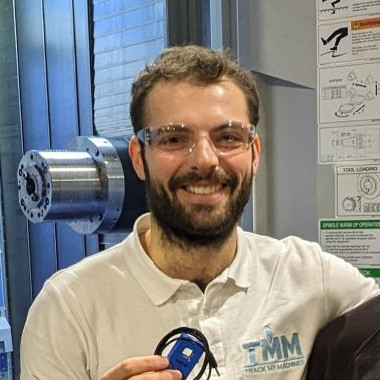When operators log downtime reasons like “Work Setting”, “Breakdown”, or “First Article Inspection” on the tablet, you may notice that these reasons get cut off prematurely when the machine starts any activity. This guide explains how to configure your downtime reasons to behave correctly during setup, breakdown, and other operations.
Understanding Downtime Reason Ending
By default, downtime reasons can be ended by any machine activity. However, during operations like work setting or first article inspection, operators often need to run the machine briefly to prove programs, check dimensions, or set tools. Without proper configuration, these brief machine movements will incorrectly end the downtime reason.
The Problem
A typical scenario:
- Operator selects “Work Setting” at 8:47am
- While setting up, they need to run the machine briefly to prove the program
- The system automatically ends the “Work Setting” reason when it detects machine activity
- The downtime reason shows only 1 minute instead of the actual 30-minute setup time
Configuring Downtime Reason Ending Behavior
There are two settings that work together to solve this problem:
1. Default Ending Type (Organization Level)
This setting controls how new downtime reasons are ended by default.
- Navigate to Manage → Organizations
- Find the “Default Ending Type” setting
- Change from the default to “End of Cycle or Shift”
[IMAGE PLACEHOLDER: Screenshot showing the Organizations page with Default Ending Type dropdown set to “End of Cycle or Shift”]
With this setting, downtime reasons will only be cut off by:
- A complete machine cycle (defined by minimum cycle length)
- The operator manually ending the reason
- The end of a shift
Brief machine movements during setup or inspection will no longer prematurely end the downtime reason.
2. Minimum Cycle Length (Per-Machine Setting)
This setting defines what constitutes a “real” cycle versus brief machine activity during setup or proving.
- Navigate to Manage → Machines
- Select the machine you want to configure
- Click “Edit”
- Under “Machine Monitoring Options”, find “Minimum Cycle Length”
- Set an appropriate value (typically 60-120 seconds depending on your operations)
[IMAGE PLACEHOLDER: Screenshot showing the Machine edit page with Minimum Cycle Length field highlighted under Machine Monitoring Options]
Choosing the Right Minimum Cycle Length
The minimum cycle length should be:
- Longer than typical proving or setup movements
- Shorter than your shortest production cycle
For example:
- If your shortest production cycle is 5 minutes, but proving movements take 10-30 seconds, set the minimum cycle length to 90 seconds
- If your cycles are very short (1-2 minutes), set it to 60 seconds
How These Settings Work Together
With both settings configured:
- Operator selects “Work Setting” at 8:47am
- They run the machine briefly (30 seconds) to prove the program
- The system sees activity under 90 seconds (Minimum Cycle Length) and does not end the “Work Setting” reason
- They continue setting up for another 20 minutes
- When they click “Start Op” or the machine runs a cycle longer than 90 seconds, the “Work Setting” reason is properly ended
[IMAGE PLACEHOLDER: Timeline diagram showing a downtime reason staying active through brief machine movements but ending when a full cycle starts]
Common Scenarios
Work Setting / Setup
When setting up a job, operators typically need to:
- Load and prove programs
- Set tool offsets by touching off
- Check work holding
- Run brief test movements
Configuration: Set Minimum Cycle Length to be longer than these proving movements but shorter than production cycles.
Breakdown / Maintenance
During breakdowns, engineers may need to:
- Jog axes to diagnose issues
- Run the machine briefly to test repairs
- Prove the machine is working correctly
Configuration: The same Minimum Cycle Length settings apply - brief test movements won’t end the “Breakdown” reason.
First Article Inspection
During first article inspection, operators need to:
- Run the complete part
- Stop to measure critical features
- Make offset adjustments
- Run another part to verify
Configuration: Set Minimum Cycle Length shorter than your cycle time so that inspection cycles properly end the inspection reason when the operator is satisfied and starts production.
Troubleshooting
Downtime reasons still ending too early
Check these settings:
- Verify Default Ending Type is set to “End of Cycle or Shift” in Manage → Organizations
- Verify Minimum Cycle Length is appropriate for your machine in Manage → Machines
- Consider increasing the Minimum Cycle Length if machine movements during setup are longer than expected
Downtime reasons not ending when they should
Check these settings:
- Verify Minimum Cycle Length is shorter than your actual production cycles
- Check that operators are clicking “Start Op” when they begin production
- Verify the machine is actually running cycles longer than the Minimum Cycle Length
[IMAGE PLACEHOLDER: Screenshot of the timeline view showing properly configured downtime reasons with clear transitions between Work Setting, First Article Inspection, and Production]
Related Settings
Machine Idle Threshold
The idle threshold determines when a machine is considered “idle” (red on the timeline). This is separate from downtime reasons but affects how the timeline appears.
To adjust idle thresholds:
- Navigate to Manage → Machines
- Select your machine and click “Edit”
- Under “Machine Monitoring Options”, adjust the current thresholds
[IMAGE PLACEHOLDER: Screenshot showing Machine Monitoring Options with threshold settings for spindle and live tool current]
For more information on setting up thresholds, see the Installation Guide.
Summary
To properly configure downtime reasons:
- Set organization default: Manage → Organizations → Default Ending Type → “End of Cycle or Shift”
- Set minimum cycle length per machine: Manage → Machines → Edit → Minimum Cycle Length (typically 60-120 seconds)
- Test with operators: Have them use the tablet during actual setups to verify the configuration works correctly
With these settings configured, downtime reasons will accurately reflect the actual time spent on setup, breakdown, and inspection activities, even when operators need to briefly run the machine during these operations.

